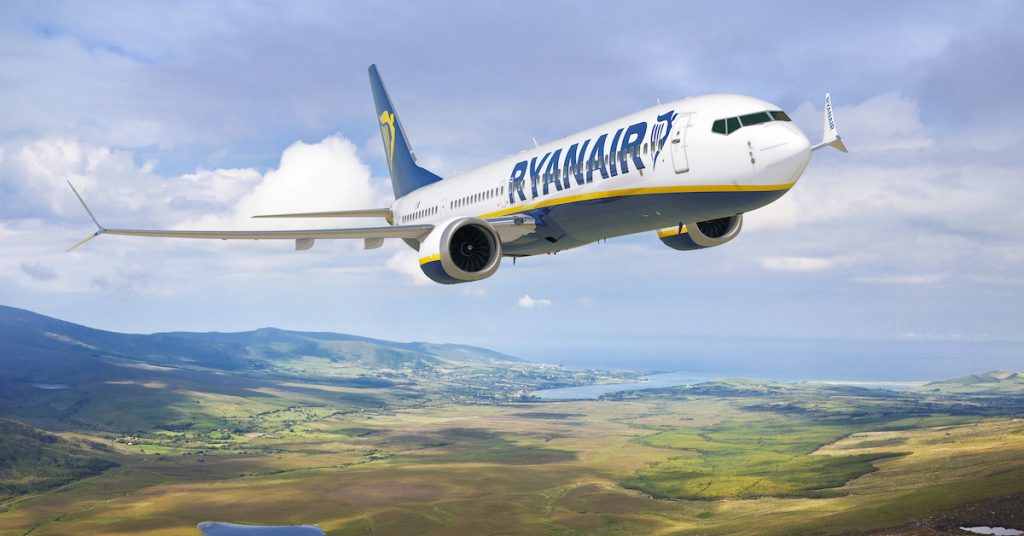Ryanair has unveiled a groundbreaking summer schedule for its London airports, adding seven new routes to bring the total to 200. The airline’s expansion strategy reflects a robust commitment to enhancing connectivity and offering diverse travel options to passengers.
Significant investments in fleet and staff accompany this expansion, positioning Ryanair to capture increased market demand and boost passenger numbers in the coming year. This move underscores the airline’s strategic focus on growth and innovation.
Expanding Network with New Routes
Ryanair has announced its largest ever summer schedule for its London airports, including Gatwick, Luton, and Stansted. This expansion will see the introduction of 200 routes, with seven new services being added. Specifically, Stansted will now have new links to Basel, Dubrovnik, Sarajevo, Poprad Tatry, and Tirana, while Luton will see the addition of Treviso and Palma.
The airline has strategically chosen these destinations to enhance connectivity across Europe, aiming to boost tourism and economic interaction in these regions. This decision highlights Ryanair’s commitment to providing diverse travel options to its passengers.
Investment in Fleet and Infrastructure
To support this expanded network, Ryanair is investing significantly in its fleet and infrastructure. The airline plans to add two new Boeing 737 aircraft at its London bases, increasing the total to 56 aircraft. This move represents an investment of $200 million, which is expected to create over 150 new jobs for pilots, cabin crew, and engineers.
Such investments are crucial for sustaining growth and meeting the increasing demand for budget travel. The new aircraft are expected to enhance operational efficiency and reduce delays, benefiting passengers directly.
Passenger Growth Forecast
Ryanair forecasts a substantial increase in passenger numbers due to this expanded schedule. It is estimated that passenger numbers from London alone will surpass 30 million this year, compared to 27 million the previous year.
This growth is indicative of the rising demand for affordable travel options among consumers, reinforced by Ryanair’s competitive pricing and strategic route expansions.
The airline is positioned to capture a significant portion of the market share by catering to this increased demand.
Leadership Statements and Industry Implications
Michael O’Leary, Ryanair’s group chief executive, has been vocal about the challenges faced by the airline industry, particularly criticising the inefficiencies of the UK Nats air traffic control system. He cites multiple failures in the previous year that led to thousands of cancellations and disruptions for passengers.
O’Leary’s comments draw attention to the broader issues within the industry’s infrastructure, underscoring the need for reforms to support growth and operational reliability.
His call for the resignation of Martin Rolfe, UK Nats’ chief executive, emphasises the stakes involved in maintaining efficient air traffic operations.
Strategic Market Positioning
Ryanair’s strategic planning in expanding its route offerings is aligned with its long-term growth objectives. By increasing its presence in key European destinations, the airline seeks not only to attract more passengers but also to strengthen its market position against competitors.
These strategic moves are indicative of Ryanair’s ability to adapt and capitalise on emerging trends in the travel industry, making significant inroads into markets traditionally dominated by other carriers.
This focus on strategic growth and expansion is a core component of Ryanair’s business model, emphasising cost-efficiency and customer satisfaction.
Economic and Employment Impact
The investment in new aircraft and routes is expected to have a positive ripple effect on the economy, particularly in terms of job creation and local business engagement. The addition of over 150 jobs highlights Ryanair’s role as a significant employer in the aviation sector.
Furthermore, the increased traffic and tourism in the newly connected regions can potentially stimulate local economies, providing a boost to various industries such as hospitality and retail.
These effects underscore the broader economic benefits that strategic airline expansions can bring to both regional and international markets.
Future Outlook
Looking ahead, Ryanair aims to continue its trajectory of growth and innovation in the competitive airline industry. By maintaining a focus on expanding route networks and investing in technology and infrastructure, the airline is well-positioned to meet future challenges.
Continuous improvement in service offerings and operational efficiency will remain at the forefront of Ryanair’s strategy, ensuring that it meets the evolving needs of modern travellers.
Ryanair’s expansive summer schedule and investment in new routes and personnel signify a pivotal moment for the airline. With initiatives aimed at boosting passenger numbers and enhancing market presence, Ryanair is set to strengthen its position in the competitive airline sector.
The airline’s robust strategy and focus on connectivity not only promise growth for Ryanair but also economic benefits for the regions it serves.

